Living with pests can have a significant impact on your mental health. From the constant worry and stress of dealing with infestations to the anxiety and unease that come with sharing your space with unwanted critters, the presence of pests can take a toll on your well-being. In this article, we will explore how pests can affect your mental health and provide valuable insights on how to address and prevent these issues. So, if you’re ready to regain control over your space and find peace of mind, keep reading to discover the impact of pests on your mental health.
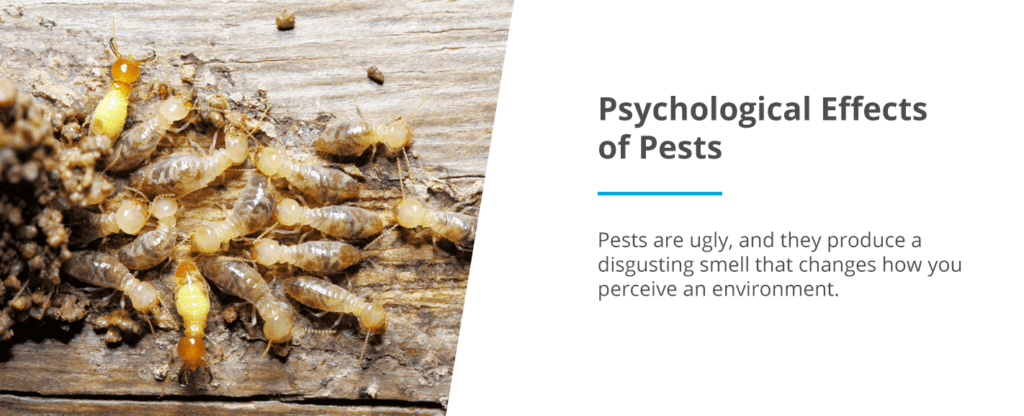
1. Overview of Pests and Mental Health
1.1 Common pests found in households
When it comes to household pests, there are several common offenders that can disrupt your daily life and have a significant impact on your mental health. Some of the most common pests found in households include rodents like mice and rats, insects such as cockroaches, ants, and bedbugs, and even small animals like squirrels or raccoons that may find their way into your attic or crawl spaces.
1.2 Definition of mental health
Before we delve into the link between pests and mental health, it’s important to understand what we mean by mental health. Mental health refers to your emotional, psychological, and social well-being. It affects how you think, feel, and act, and plays a crucial role in determining how we handle stress, relate to others, and make choices.
1.3 Link between pests and mental health
Believe it or not, pests can have a significant impact on your mental health. Living with pests in your home can lead to an array of psychological and behavioral effects that can take a toll on your overall well-being. From anxiety and fear to depression and loneliness, the presence of pests can trigger a range of negative emotions and behaviors. It is essential to recognize the connection between pests and mental health to address these issues effectively and maintain a healthy living environment.
2. Psychological Effects of Pests
2.1 Anxiety and fear
The presence of pests in your home can cause a great deal of anxiety and fear. The mere thought of pests crawling or scurrying around can be distressing and trigger feelings of unease. This anxiety can intensify if you have a phobia of specific pests or if you’ve had a negative past experience with them. Living in constant fear can have a detrimental impact on your mental health and overall quality of life.
2.2 Irritability and anger
Dealing with a pest infestation can be infuriating and frustrating. The ongoing battle to keep these unwanted visitors at bay can leave you feeling irritable and easily angered. The constant presence of pests can disrupt your daily routines and make you feel like your home is being invaded, leading to a sense of powerlessness and aggression.
2.3 Depression and loneliness
Pests can contribute to feelings of depression and loneliness. The presence of pests in your home can isolate you from social activities, as you may feel embarrassed or ashamed to invite friends or family over. The persistent burden of dealing with pests can also lead to a sense of hopelessness and sadness, dampening your overall mood and mental well-being.
2.4 Sleep disturbances
Pests can significantly impact your sleep patterns and quality of rest. The sounds of rodents scurrying, insects buzzing, or bedbugs biting can make it challenging to fall asleep or stay asleep throughout the night. Sleep disturbances can lead to fatigue, mood swings, and difficulties in concentration, further exacerbating mental health issues.
2.5 Impact on cognitive function
The presence of pests in your living environment can also affect your cognitive function. Constant worry and preoccupation with dealing with pests can make it challenging to focus, concentrate, and maintain productivity. This can have an adverse effect on your work or academic performance and hinder your ability to carry out daily tasks efficiently.
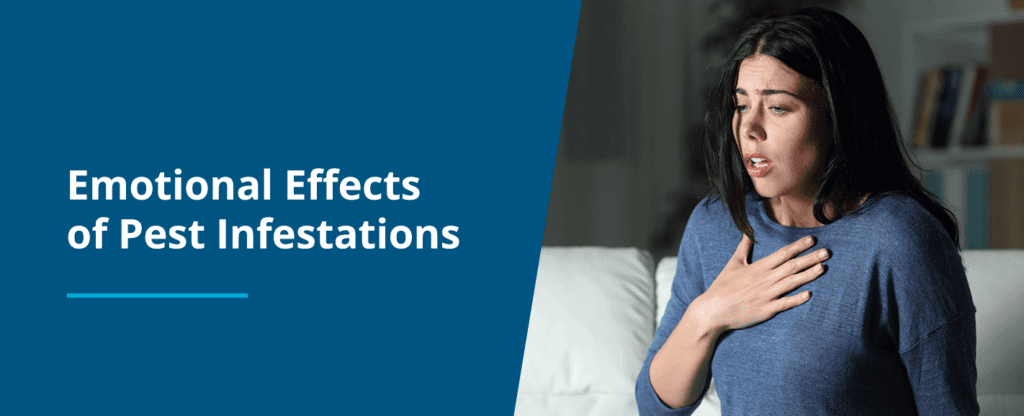
3. Behavioral Effects of Pests
3.1 Obsessive-compulsive behaviors
Living with pests can trigger obsessive-compulsive tendencies in some individuals. The anxiety and fear associated with pests can drive people to engage in excessive cleaning, checking for signs of infestation repeatedly, or developing strict rituals to keep pests at bay. These behaviors can consume a significant amount of time and energy, further adding to the stress and strain on mental health.
3.2 Avoidance and isolation
Pest problems can lead to avoidance and isolation behaviors. Individuals may avoid certain areas of their home or specific activities to minimize encounters with pests. This constant vigilance and the need to avoid infested areas can result in feelings of isolation and withdrawal from social interactions, negatively impacting mental well-being.
3.3 Hoarding tendencies
In some cases, living with pests can trigger hoarding tendencies. Individuals may accumulate excessive belongings or refuse to discard items for fear of attracting or accommodating pests. This hoarding behavior can clutter living spaces, create unsanitary conditions, and further contribute to feelings of stress and overwhelm.
3.4 Increased aggression
The frustration and irritability associated with pest problems can lead to increased aggression. From lashing out verbally or physically to experiencing heightened irritability towards loved ones, the presence of pests can strain relationships and exacerbate aggressive tendencies.
3.5 Decreased motivation
The relentless battle against pests can drain your motivation and zest for life. The constant need to address pest-related issues can leave you feeling overwhelmed and fatigued, resulting in decreased motivation to engage in activities you once enjoyed or pursue personal goals.
4. Physical Health Implications
4.1 Allergies and respiratory issues
Pests, such as cockroaches, rodents, or dust mites, can trigger allergies and respiratory issues. Their droppings, shed skin, or saliva can become airborne and irritate your respiratory system. This can lead to symptoms like coughing, sneezing, wheezing, and in some cases, even asthma attacks. Allergies and respiratory issues can further contribute to sleep disturbances, fatigue, and overall discomfort, impacting both physical and mental well-being.
4.2 Skin conditions and infections
Certain pests, like bedbugs or ticks, can cause skin conditions and infections. Bedbugs, for example, leave red and itchy bite marks on the skin, which can lead to discomfort and disturbed sleep. Scratching these bites can also break the skin, increasing the risk of infection. Dealing with these physical ailments can intensify stress and negatively affect mental health.
4.3 Spread of diseases and pathogens
Pests can carry and transmit various diseases and pathogens, posing a significant threat to your physical health. For example, rodents can spread diseases like hantavirus or leptospirosis, while ticks can transmit Lyme disease. The fear of contracting a disease from pests can heighten anxiety levels and impact mental well-being.
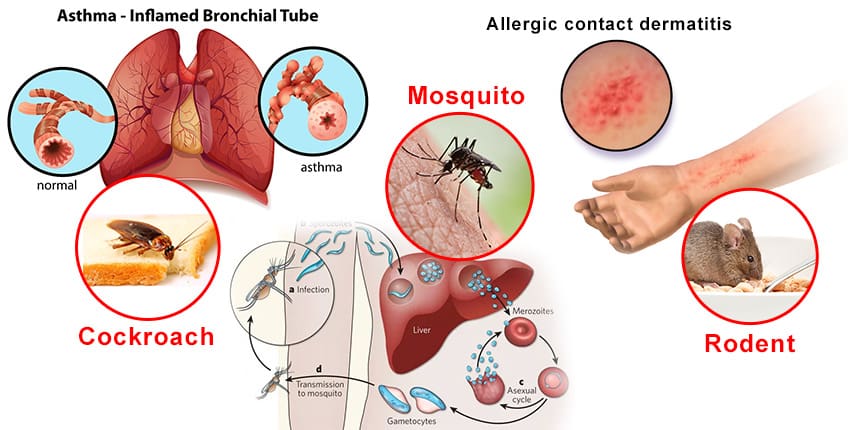
5. Financial and Material Consequences
5.1 Property damage
Pests can cause significant damage to your property. Rodents, for instance, may chew through electrical wires, leading to potential fire hazards. Insects like termites can wreak havoc on the structural integrity of your home by feeding on wood. Dealing with these damages can be costly and add financial stress to your life.
5.2 Cost of pest control measures
Implementing effective Pest Control measures often comes at a price. Whether it’s hiring professional pest control services or purchasing products to address the infestation yourself, the cost of pest control can strain your finances and add to the overall burden of dealing with pest-related issues.
5.3 Replacement and repair expenses
In addition to property damage, pests can cause the need for repairs or replacements. For example, if pests have caused damage to furniture, flooring, or other belongings, you may need to spend money on repairs or buy new items altogether. These unexpected expenses can put a strain on your budget and indirectly impact your mental well-being.
6. Impact on Quality of Life
6.1 Disturbed sleep patterns
Living with pests can severely disrupt your sleep patterns. The constant worry, noises, and discomfort associated with pests can make it challenging to get a good night’s sleep. Lack of quality sleep can leave you feeling fatigued, irritable, and affect your overall quality of life.
6.2 Negative impact on relationships
Pest problems can strain relationships and negatively impact your interactions with loved ones. The stress, irritability, and avoidance behaviors associated with pests can lead to conflicts and strain your connections with family members, friends, or roommates. Maintaining healthy relationships becomes even more challenging when the presence of pests is a constant source of tension.
6.3 Interference with daily activities
Dealing with pest-related issues can interfere with your daily activities. Whether it’s difficulty preparing meals due to rodent or insect infestations in the kitchen or feeling uncomfortable in your own home due to pests, these disruptions can create additional stress and hinder your ability to carry out daily tasks.
6.4 Decline in overall well-being
The cumulative impact of pests on various aspects of your life can lead to a decline in overall well-being. The constant worry, financial burden, physical discomfort, and strain on relationships can all contribute to a diminished sense of happiness and satisfaction with life.
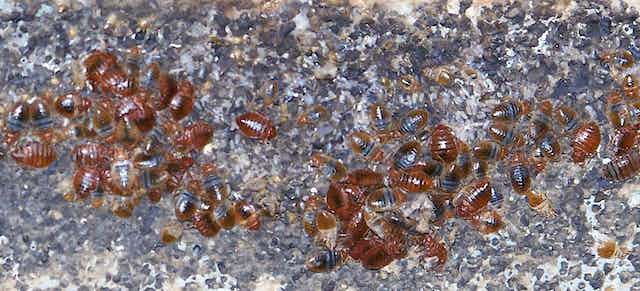
7. Children and Pests
7.1 Vulnerability and psychological impact on children
Children are particularly vulnerable to the psychological impact of living with pests. The presence of pests can evoke strong emotional reactions in children, leading to fear, anxiety, and nightmares. These negative experiences can leave a lasting impact on their mental well-being and overall development.
7.2 Behavioral changes in children
The psychological effects of pests on children can manifest in behavioral changes. Children may exhibit increased irritability, aggression, or withdrawal. They may struggle with concentration and academic performance as their focus is disrupted by anxiety or fear related to pests.
7.3 Long-term effects on development
Exposure to pests and the associated stress during childhood can have long-term effects on children’s development. It can impact their social skills, academic achievements, and overall mental health. Addressing pest-related issues early on and providing appropriate support is crucial to mitigating the long-term impact on children.
8. Coping Strategies and Support
8.1 Pest prevention and control methods
The first line of defense against pests is prevention. By implementing effective pest prevention measures, such as sealing cracks and openings, clearing clutter, and maintaining cleanliness, you can reduce the likelihood of a pest infestation. Regular pest control treatments and inspections can also help manage existing infestations and prevent future ones.
8.2 Seeking professional help
In cases of severe or persistent pest problems, seeking professional help from pest control experts is advisable. They have the knowledge, experience, and resources to effectively identify and exterminate pests in your home. Professional pest control can provide you with peace of mind and alleviate the burden of dealing with pests on your own.
8.3 Psychological support and counseling
If the presence of pests has had a significant impact on your mental health, seeking psychological support and counseling can be highly beneficial. Mental health professionals can help you develop coping strategies, manage anxiety, and address any underlying issues that may have been worsened by the presence of pests. They can also provide support for children who may be experiencing psychological distress due to pest-related issues.
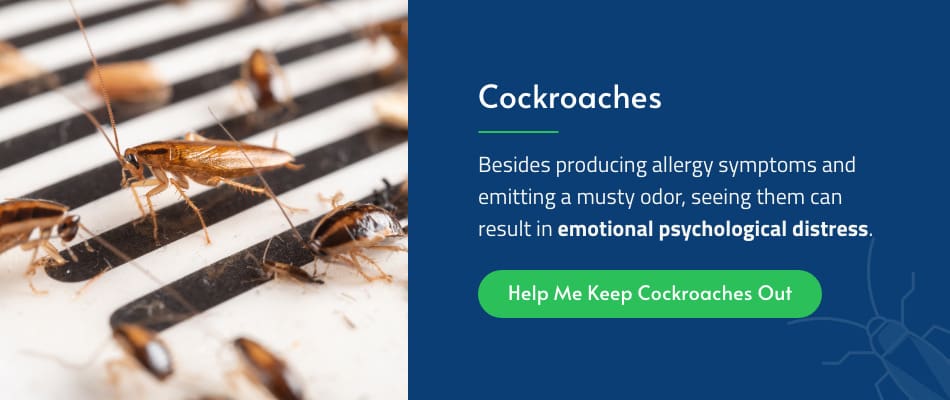
9. Importance of Early Intervention
9.1 Recognizing signs and symptoms
Early intervention is crucial in addressing the impact of pests on mental health. Recognizing the signs and symptoms associated with pest-related stress, such as anxiety, irritability, sleep disturbances, or changes in behavior, can help identify the need for intervention.
9.2 Timely pest management and mental health intervention
Addressing pest problems and mental health issues in a timely manner is essential. Prompt pest management measures can prevent the infestation from worsening and reduce the associated stress. Simultaneously, seeking mental health intervention early on can help alleviate psychological distress and prevent long-term consequences.
10. Conclusion
Living with pests in your home can have a profound impact on your mental health and overall well-being. From the psychological effects of anxiety and fear to behavioral changes and physical health implications, pests can disrupt every aspect of your life. Recognizing the link between pests and mental health is essential in addressing these issues effectively. By adopting practical strategies for pest prevention and control, seeking professional help when needed, and prioritizing mental health support, you can reclaim control over your living environment and improve your overall quality of life. Remember, early intervention is key to minimizing the negative consequences and maintaining a healthy, pest-free home.

I am Randy, the author behind PestControld.com. Drawing from decades of experience, I aim to provide valuable insights, expert advice, and practical recommendations to help you make informed decisions when assessing viable pest control solutions.